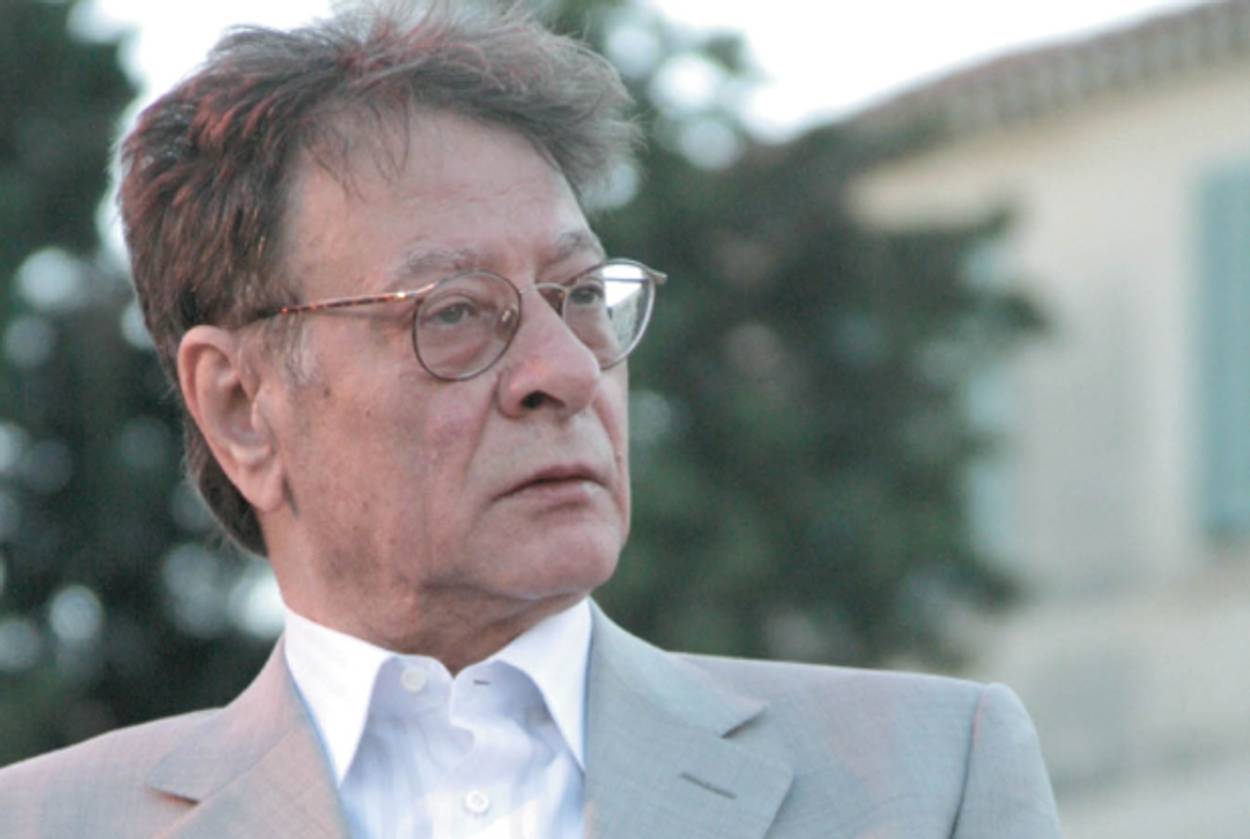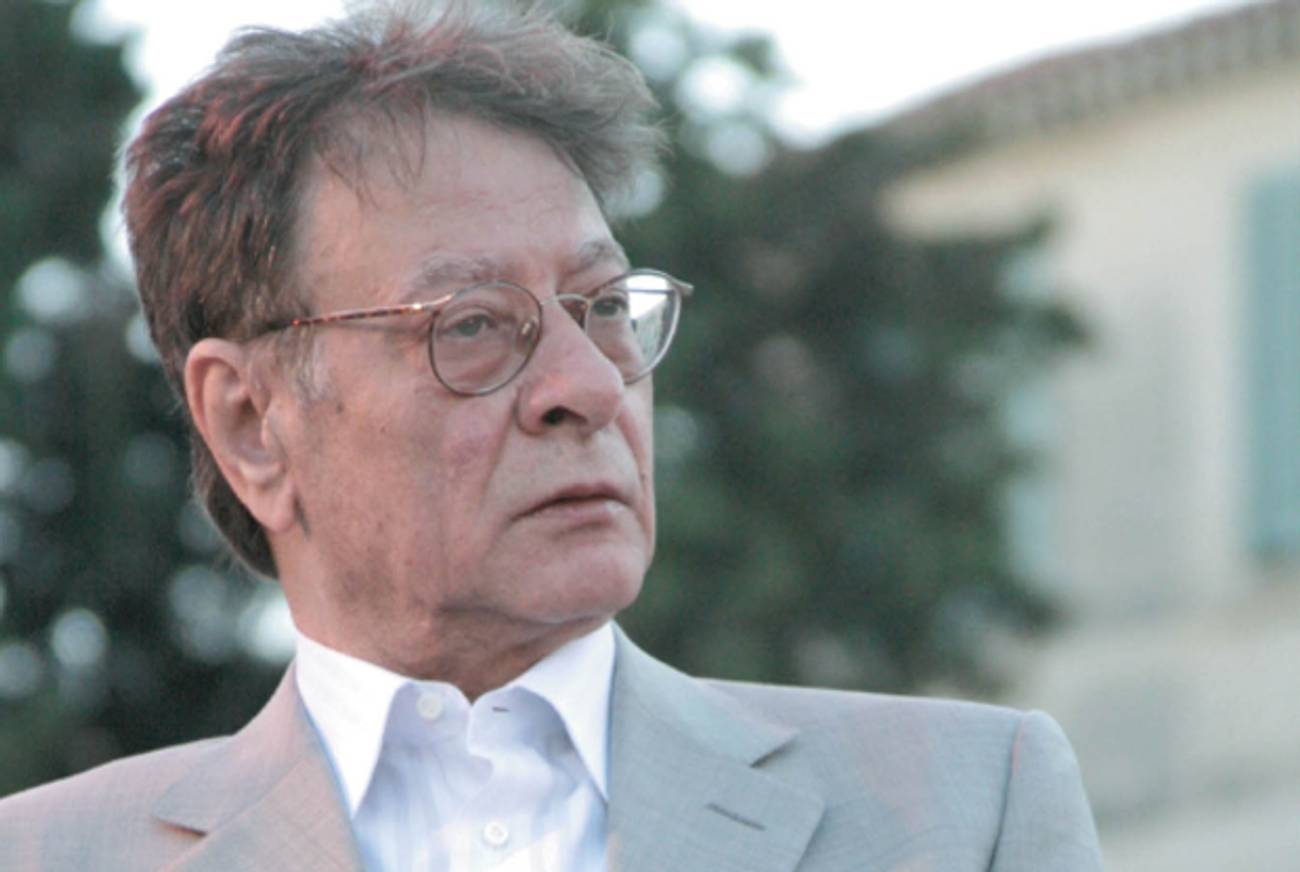The Legacy of Mahmoud Darwish
Remembering the Palestinian poet on the five-year anniversary of his death




With peace talks registering at a low simmer in the public consciousness, it seems appropriate to mark the five-year anniversary of the death of Palestinian poet Mahmoud Darwish. Achieving a legendary status, Darwish was the de facto Palestinian poet laureate, frequently (and perhaps unfairly) linked with the Israeli poet Yehuda Amichai.
Darwish actually preferred to liken himself to Allen Ginsberg, but with delicate and surprising turns of phrase and themes of dispossession, violence, and exile, the inevitable pairing of Darwish and Amichai almost fit too well, two ambivalent neighbors stuck in the same place.
Darwish, who was the most widely read poet in the Arab world and filled stadiums for his readings, said of Amichai in 2002,
“His poetry put a challenge to me, because we write about the same place. He wants to use the landscape and history for his own benefit, based on my destroyed identity. So we have a competition: who is the owner of the language of this land? Who loves it more? Who writes it better?”
Apparently Amichai felt the same way. In an excellent series of interviews with the Paris Review, Amichai was once asked if he saw similarities between Israeli poetry and Palestinian poetry. The interviews started in 1989, just after the outbreak of the First Intifada, and ended just before First Gulf War ended, which would eventually usher in the Madrid Peace Conference and ultimately, Oslo. Here’s what Amichai said:
Basically, yes. I think that Israeli Arab and Palestinian poets are trying to do the same things within their traditions that Israeli poets are trying to do within theirs. In a way, we are working on common ground—not only literally, within the same reality, the same landscape, but also on common spiritual ground as poets. It’s mainly been Palestinian poetry that’s interested me. Poets such as Mahmoud Darwish, Samih Al-Qasim, powerful, strong poets who mix traditional and modern forms and techniques and language with political subject matter. Mahmoud Darwish and I have read together at several international events. And, although I don’t accept much of his role as a political figure in the PLO, I greatly respect and admire him as a poet. As far as I know he thinks the same of me; I’m sure he doesn’t agree with much of my politics, although I’m not outspoken politically. I’m more of a moralist poet who deals with political realities than a poet who writes out of a political context. But I have no illusions. It’s quite difficult for poets to communicate with one another in a society that is politically torn apart the way that ours is. I have a doctor friend who tells me it’s the same with doctors. When, for example, he meets Syrian doctors at international meetings, everything is cordial and collegial on the level of being doctors. But this is a kind of illusion, because ultimately politics intrudes. At some point the Israeli and the Syrian have to return to the political realities of their own countries and whatever exchanges were made become transitory. This is true for Arabic and Hebrew poets, for Jewish and Arab doctors and teachers. The exchanges on professional levels help but on political levels—in terms of real political effects—the results are illusory.
Darwish was polarizing for Israelis—whose cherished narrative of Zionism and settlements he challenged—as well as Palestinians, who didn’t react well to his critiques of Hamas or his humanizing of Israelis. For this, he became a titan. There was probably no other way.
Here is a small part of his poem “To a Young Poet,” the rest of which can be read here:
Don’t believe the accuracy of our instructions.
Believe only the caravan’s trace.
A moral is as a bullet in its poet’s heart
a deadly wisdom.
Be strong as a bull when you’re angry
weak as an almond blossom
when you love, and nothing, nothing
when you serenade yourself in a closed room.
The road is long like an ancient poet’s night:
plains and hills, rivers and valleys.
Walk according to your dream’s measure: either a lily
follows you or the gallows.
Adam Chandler was previously a staff writer at Tablet. His work has appeared in the New York Times, the Wall Street Journal, the Atlantic, Slate, Esquire, New York, and elsewhere. He tweets @allmychandler.